Panasonic Leica DG Summilux 25mm f/1.4 ASPH Review
-
Ease
of Use -
Sample
Images -
Lens
Specs -
Rating &
Conclusion -
Main
Rivals -
Review
Roundup - Comment
-
More…

Introduction
The Panasonic Leica DG Summilux 25mm f/1.4 ASPH is a very fast standard lens for the Micro Four Thirds system. Offering a 35mm camera equivalent focal length of 50mm, the Panasonic 25mm lens is comprised of 9 elements arranged in 7 groups, including 2 aspherical elements and 1 ultra-high-refractive-index lens element. It features a special Nano Surface Coating to minimise ghosting and flare, and an iris diaphragm with seven rounded aperture blades. The Leica DG Summilux 25mm f/1.4 ASPH lens is available for £548.99 / $599.99 in the UK and the US, respectively.
Ease of Use
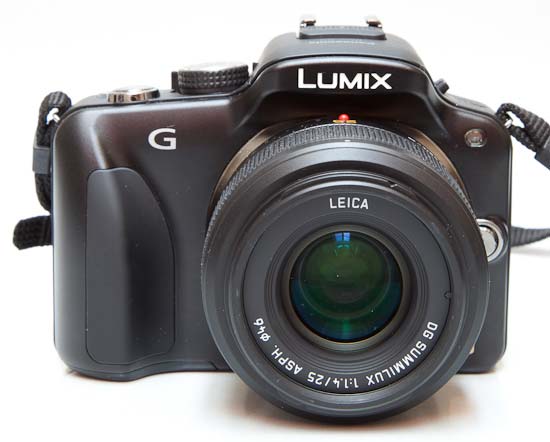 The Leica DG Summilux 25mm f/1.4 ASPH lens attached to the Panasonic Lumix DMC-G3
The Leica DG Summilux 25mm f/1.4 ASPH lens attached to the Panasonic Lumix DMC-G3
The Leica DG Summilux 25mm f/1.4 ASPH is fairly small and light for a standard lens offering a 35mm equivalent focal range of 50mm, easily fitting in the palm of your hand.
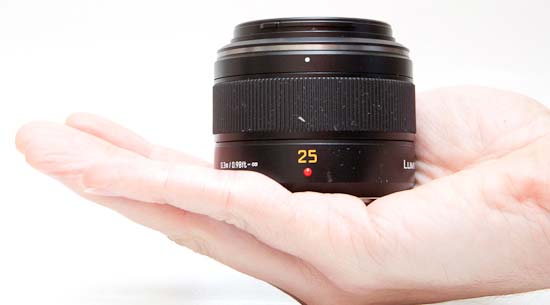 In the palm of a hand
In the palm of a hand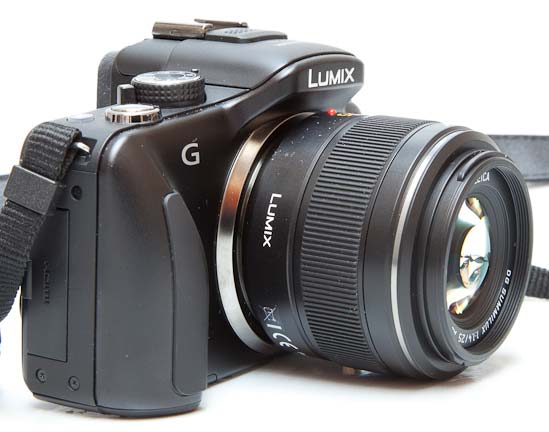 Attached to the Panasonic Lumix DMC-G3
Attached to the Panasonic Lumix DMC-G3
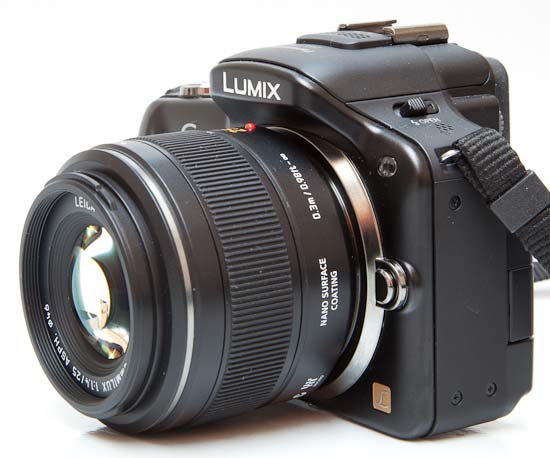 Attached to a Panasonic Lumix DMC-G3
Attached to a Panasonic Lumix DMC-G3
It's a pretty compact affair for a lens that offers a standard focal length and such a fast maximum aperture, measuring just 54.5mm in length, and it's also very light at only 200grams.
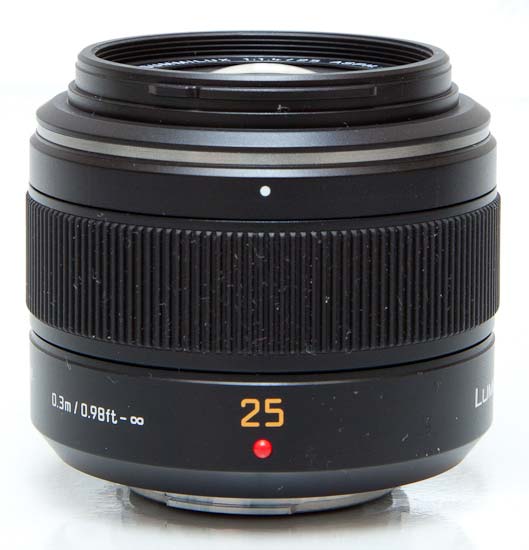 Front of the lens
Front of the lens
In terms of features, the lens is very sparse, with just a responsive manual focusing ring and no focus scale.
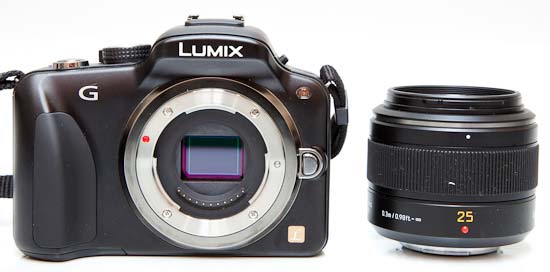 Alongside the Panasonic Lumix DMC-G3
Alongside the Panasonic Lumix DMC-G3
The Leica DG Summilux 25mm f/1.4 ASPH lens may have quite a lot of plastic parts, but the lens mount is, thankfully, made of metal. Panasonic does not claim any sort of weather resistance for this lens, and indeed you cannot see a rubber seal around the mount (note that no current Micro Four Thirds camera is weather sealed anyway).
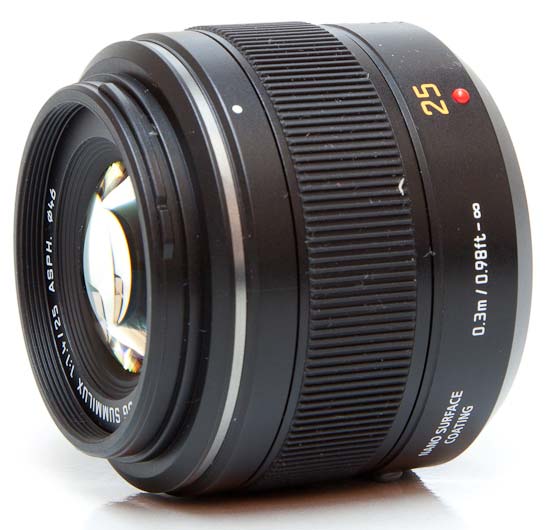 Side of the lens, isometric view
Side of the lens, isometric view
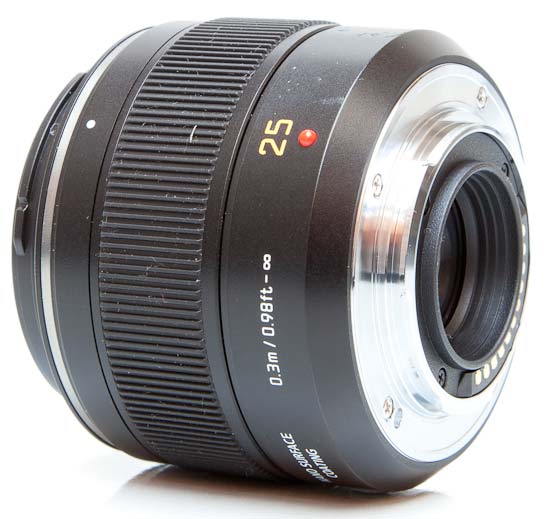 Side of the lens, isometric view
Side of the lens, isometric view
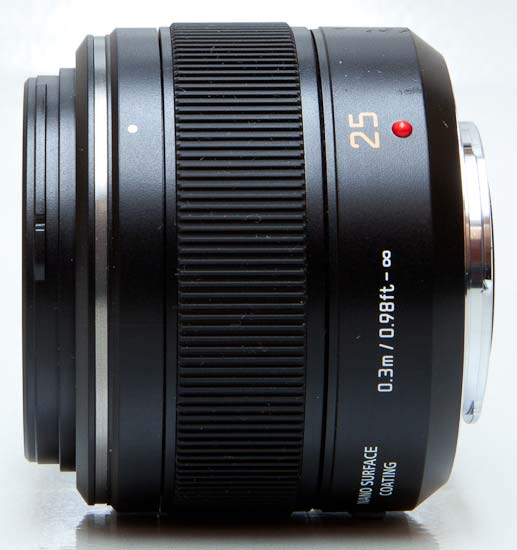 Side of the lens
Side of the lens
Usefully the lens comes with a large lens hood and a cloth storage bag, and it accepts 46mm filters. Less usefully, the rectangular-shaped lens hood cannot be reverse-fitted onto the lens, making it more difficult to safely store away when not in use.
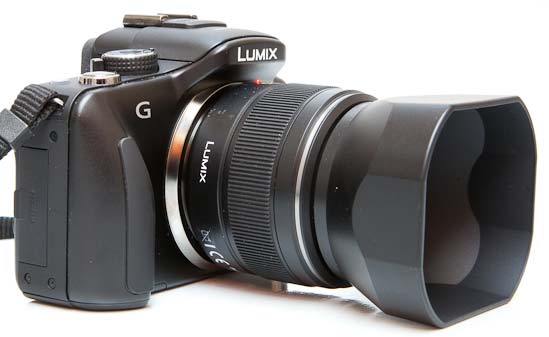 The lens hood
The lens hood
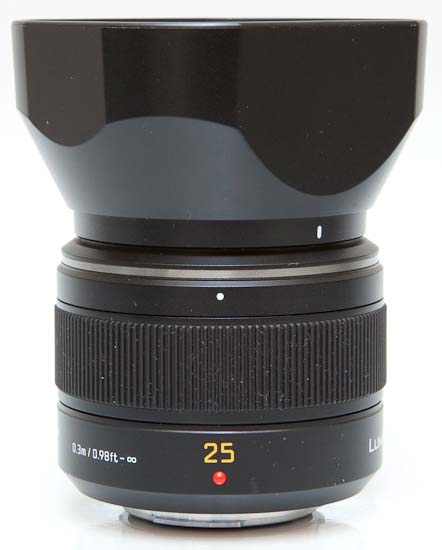 The lens hood
The lens hood
Focal Range
The lens has a diagonal angle of view of 47°, equivalent to that of a 50mm lens in a 35mm system.
 Field of view at 25mm
Field of view at 25mm
Focusing
The Leica DG Summilux 25mm f/1.4 ASPH lens offers almost silent focusing, and in use, we have found the system very quick on the new DMC-G3.
The 46mm filter thread does not rotate on focus, which is good news for users of polarisers and graduated neutral density filters.
Manual focusing is possible in a focus-by-wire fashion. This should not put you off using it as it feels pretty natural in use, and actually enables the camera to display a magnified view of the subject automatically, i.e. without your having to press a dedicated button or enter the menu. The focus ring is quite wide and more than adequate for the job.
Chromatic Aberrations
Chromatic aberrations, typically seen as purple or blue fringes along contrasty edges, are only conspicuous by their almost complete absence, as shown by the 100% crop below.
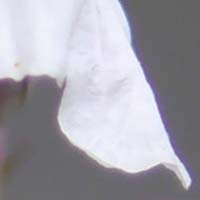 |
Light Fall-off
With the lens set to its maximum aperture of f/1.4, there is just a little light fall-off in the corners.
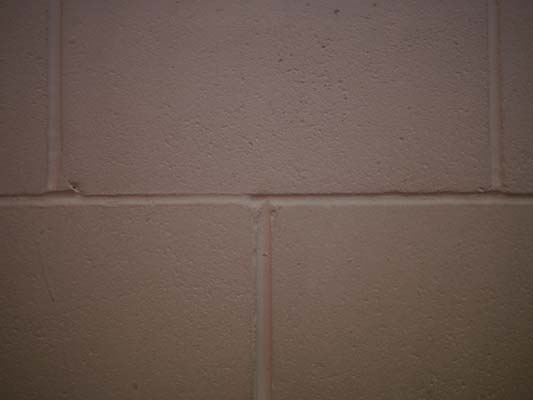 Light fall-off
Light fall-off
Macro
TheLeica DG Summilux 25mm f/1.4 ASPH has a closest focusing distance of 0.3m / 0.98ft and a maximum 0.11x magnification rating.
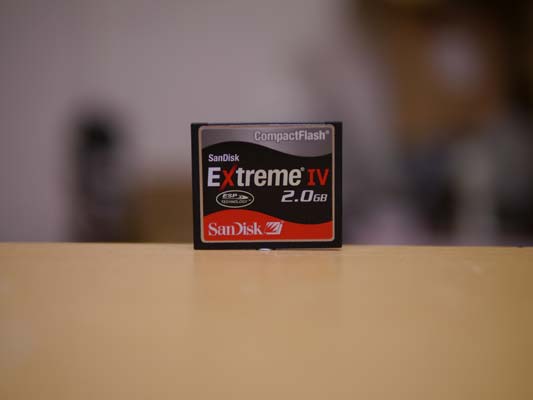 Close-up performance
Close-up performance
Bokeh Examples
Bokeh is a word used for the out-of-focus areas of a photograph, and is usually described in qualitative terms, such as smooth / creamy / harsh etc. In the Leica DG Summilux 25mm f/1.4 ASPH lens, Panasonic employed a diaphragm with 7 rounded blades, which has resulted in very nice bokeh, at least in our opinion. However, recognising that bokeh evaluation is subjective, we have provided a few examples for your perusal.
 |
 |
 |
 |
Sharpness
In order to show you how sharp this lens is, we are providing 100% crops on the following page.
-
Ease
of Use -
Sample
Images -
Lens
Specs -
Rating &
Conclusion -
Main
Rivals -
Review
Roundup - Comment
